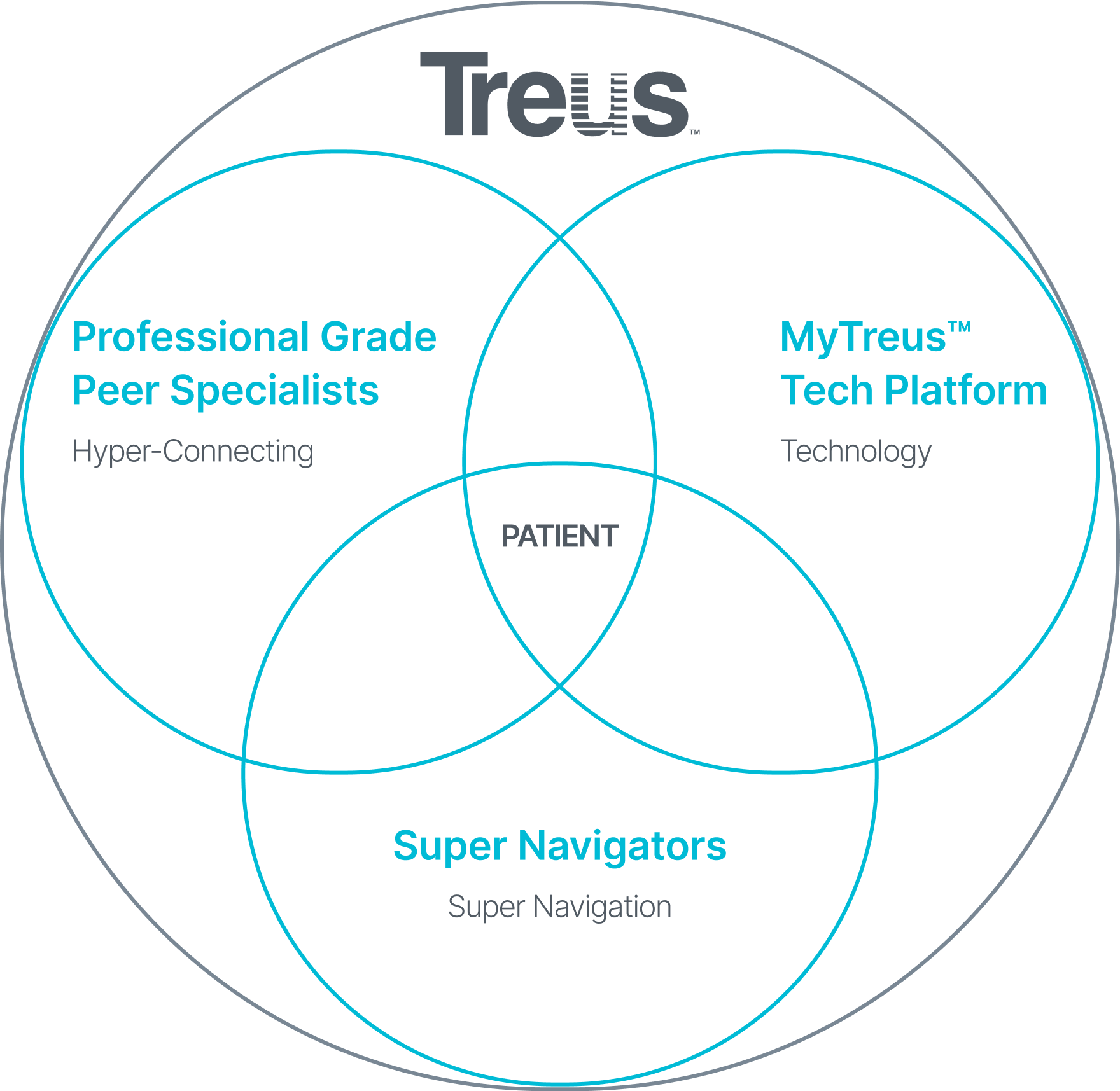Bio-psycho-social-spiritual | nature of opioid use disorder
Opioid Use Disorder (“OUD”) is the result of interactions between issues in the body, mind, social environment, and spiritual status, each of which complicate and amplify one another. Other substance use disorders (e.g., alcohol, stimulants, sedatives and food) and behavior disorders (e.g., compulsive gambling and shopping) are all subject to the same bio-psycho-social-spiritual dynamics.

Including genetic predisposition, physical dependence, and medical diseases that influence the risk of OUD.

Including anxiety, trauma, and stress that inhibit recovery.

Including relationships, poverty, isolation, housing, food insecurity, and unemployment challenges that are large obstacles to patient recovery.

Including loss of purpose, guilt, shame, disconnection from a higher power, and struggle with forgiveness.
Creates a concierge-like seamless and integrated patient care experience.

Creates a hyper-personalized and dynamic care platform and experience enabled by technology.

Builds deep trust and confidence with peers who have a shared experience with substance use disorder.


Armed with accountability, authority and technological support, this senior clinician fills the gaps in current practice for OUD care delivery. The Super Navigator represents the patient, collaborates with care providers on his/her behalf and always remains connected to the patient and Peer Specialist. The Super Navigator ensures continuity and cohesion as the patient engages with multiple providers, therapies, medications and experiences across the clinical model.
A trained and certified partner with a lived experience who works closely with the patient and Super Navigator and is supported by the MyTreus technology platform. The Peer Specialist provides the trust and emotional connectivity needed to support a more reliable recovery.
An integrated technology platform for providers, patients and their families, enabling Super Navigators and Peer Specialists to achieve hyper-personalization, care continuity and dynamic, measurement-based care.
The technology platform is an integral Neurofinity clinical model tool for patients, families, traditional providers (e.g., addiction doctors, psychiatrists, therapists, counselors, nurses, NPs and PAs), Super Navigators and Peer Specialists. Utilizing AI and other tech tools, the platform enables hyper-personalization, integration, outcomes measurement of OUD care.

Bringing new solutions to clinical, operational and financial challenges with OUD care.
An approach that is designed to improve hospital operations and patient outcomes.
A commitment to provide the needed evidence and ROI for payers to support optimum reimbursement.
A model of OUD care that is designed to fill gaps that patients struggle with.
A system of care that provides the needed confidence for use of funds to support improved outcomes for patients and communities struggling with OUD.